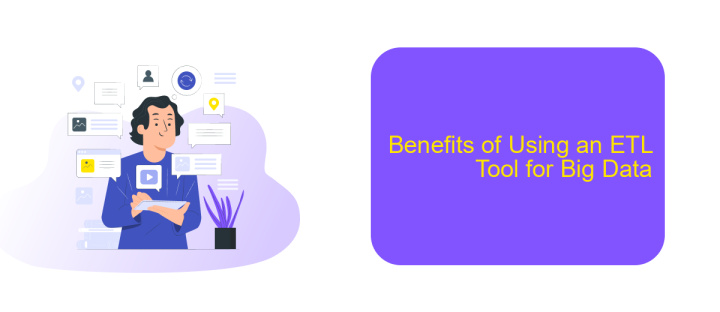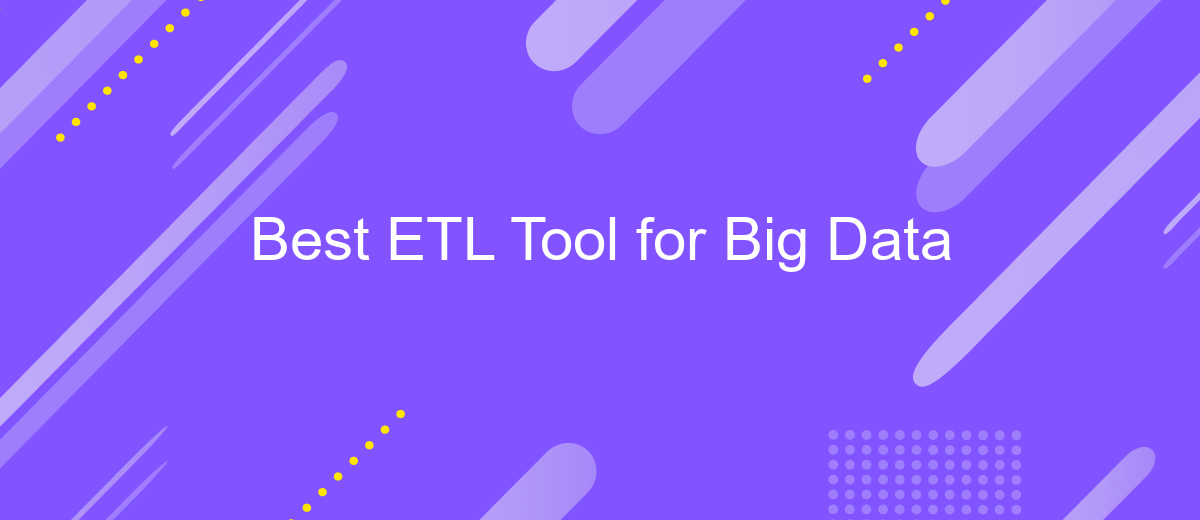Best ETL Tool for Big Data
In the era of big data, selecting the right ETL (Extract, Transform, Load) tool is crucial for efficient data management and analysis. With numerous options available, finding the best ETL tool that meets your specific needs can be challenging. This article explores top ETL tools, comparing their features, performance, and suitability for handling large-scale data operations.
Introduction
In today's data-driven world, organizations are constantly seeking efficient ways to manage and analyze their vast amounts of data. Extract, Transform, Load (ETL) tools have become essential for handling big data, enabling businesses to gather data from multiple sources, transform it into a usable format, and load it into a data warehouse or other storage systems. Choosing the right ETL tool can significantly impact the quality and speed of data processing.
- Data Integration: The ability to connect and integrate data from various sources.
- Scalability: Handling increasing volumes of data without compromising performance.
- Usability: User-friendly interfaces and functionalities for both technical and non-technical users.
- Cost-effectiveness: Balancing features and pricing to fit budget constraints.
One notable service that aids in setting up integrations is ApiX-Drive. It offers a simple, no-code platform for connecting various applications and automating data workflows, making it an excellent choice for businesses looking to streamline their ETL processes. With the right ETL tool, organizations can unlock the full potential of their data, driving better decision-making and business outcomes.
Key Features to Consider

When evaluating an ETL tool for big data, scalability is a crucial feature to consider. The tool should efficiently handle large volumes of data, ensuring seamless processing without performance degradation. Additionally, robust data transformation capabilities are essential, allowing for complex data manipulations and ensuring data quality. Ease of use, including a user-friendly interface and comprehensive documentation, can significantly reduce the learning curve and speed up the implementation process.
Integration capabilities are another vital aspect. The ETL tool should support a wide range of data sources and destinations, enabling smooth data flow across different platforms. Tools like ApiX-Drive can be particularly useful, offering seamless integration with various applications and services, thereby simplifying the data integration process. Furthermore, strong error handling and logging mechanisms are important to quickly identify and resolve issues, ensuring data integrity and reliability.
Comparison of Top ETL Tools

Choosing the right ETL tool for big data is crucial for efficient data management and analytics. Here, we compare some of the top ETL tools available in the market today:
- Apache NiFi: Known for its user-friendly interface and real-time data ingestion capabilities.
- Talend: Offers a comprehensive suite for data integration, with strong support for cloud environments.
- Informatica PowerCenter: A robust tool with advanced data transformation features and scalability.
- ApiX-Drive: Simplifies the process of integrating various applications and automating workflows without coding.
- Microsoft SQL Server Integration Services (SSIS): Provides a powerful platform for data integration and workflow applications.
Each of these tools has its own strengths, making them suitable for different use cases. For instance, ApiX-Drive is particularly effective for businesses looking to automate integrations quickly and efficiently. When selecting an ETL tool, consider factors such as ease of use, scalability, and specific data requirements to ensure optimal performance and value.
Benefits of Using an ETL Tool for Big Data

Using an ETL tool for big data offers numerous advantages, making it an essential component in modern data management strategies. ETL tools streamline the process of extracting, transforming, and loading data, ensuring that large volumes of data are processed efficiently and accurately.
One of the significant benefits of ETL tools is their ability to handle complex data transformations. These tools can manage data from various sources, apply necessary transformations, and load it into a data warehouse or data lake. This not only saves time but also reduces the risk of errors that can occur with manual data processing.
- Improved data quality and consistency
- Faster data processing and loading times
- Scalability to handle growing data volumes
- Enhanced data governance and compliance
- Seamless integration with various data sources
Furthermore, services like ApiX-Drive facilitate the integration of different data sources with ETL tools, automating workflows and ensuring data is always up-to-date. This integration capability is crucial for businesses that rely on real-time data analytics to make informed decisions. By leveraging ETL tools, organizations can unlock the full potential of their big data, driving better business outcomes.


Conclusion and Recommendations
In conclusion, selecting the best ETL tool for big data largely depends on your specific needs, resources, and technical expertise. Tools like Apache NiFi, Talend, and Informatica offer robust functionalities for complex data processing tasks, while cloud-based solutions such as Google Dataflow and AWS Glue provide scalability and ease of integration with other cloud services. Each tool has its own strengths and weaknesses, so it’s crucial to evaluate them based on criteria such as performance, scalability, ease of use, and cost.
For organizations looking to streamline their integration processes, services like ApiX-Drive can be highly beneficial. ApiX-Drive simplifies the connection between various applications and automates data transfer, making it easier to manage ETL workflows without extensive coding. By leveraging such services, businesses can enhance their data handling capabilities, reduce manual efforts, and ensure more reliable data processing. Ultimately, the right ETL tool will enable you to efficiently manage your big data, driving better insights and decision-making.
FAQ
What is an ETL tool, and why is it important for Big Data?
What are the key features to look for in a Big Data ETL tool?
How do ETL tools handle data transformation for Big Data?
Can ETL tools be used for real-time data processing?
How can I integrate and automate ETL processes for my organization?
Strive to take your business to the next level, achieve your goals faster and more efficiently? Apix-Drive is your reliable assistant for these tasks. An online service and application connector will help you automate key business processes and get rid of the routine. You and your employees will free up time for important core tasks. Try Apix-Drive features for free to see the effectiveness of the online connector for yourself.

